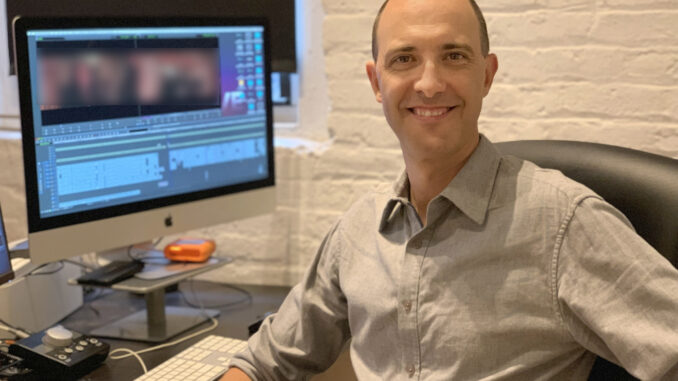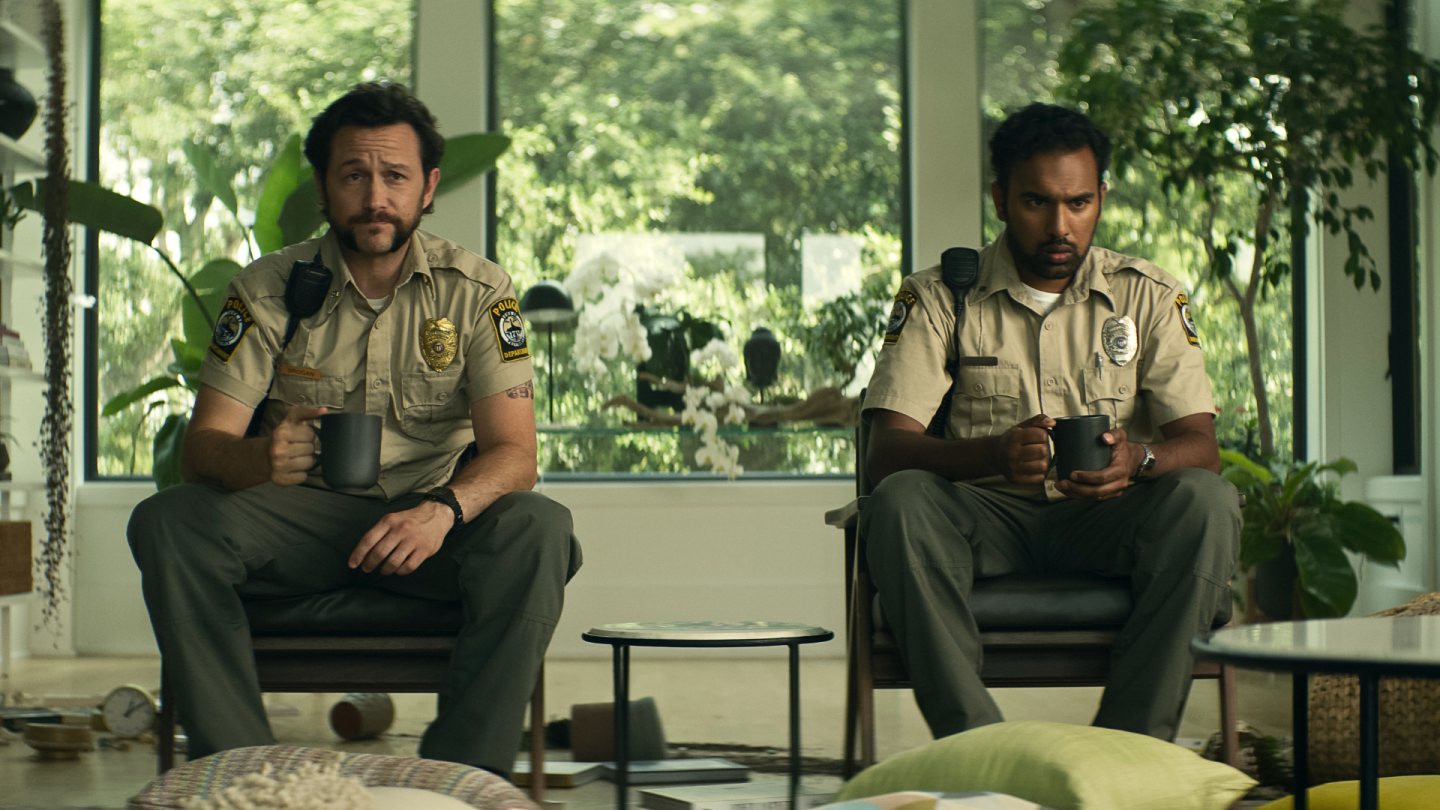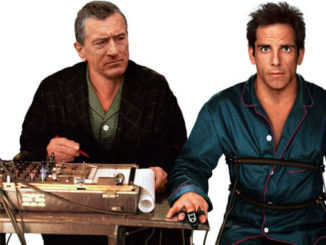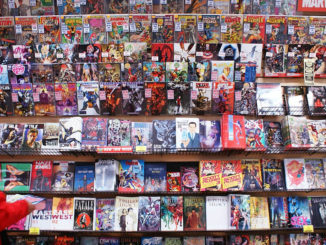
By Rob Feld
For Jamie Kirkpatrick, ACE, the path to editing began in the Midwest, where, as an only child, he entertained himself by crafting elaborate narratives with action figures. This early penchant for storytelling carried him to film school in Boston. His big break came unexpectedly during an internship on the Paramount film “Little Giants,” where he found himself mentored by a stellar team of Oscar-winning editors—Donn Cambern, Billy Weber, and Michael Tronick. Under Cambern’s guidance, Kirkpatrick had his “a-ha” moment, realizing the profound creative control an editor wields. Watching Steven Spielberg, the film’s executive producer, refine the final cut without the luxury of reshoots solidified his passion for editing.
This formative experience set the stage for Kirkpatrick’s career and his continued collaboration with director Potsy Ponciroli, most recently on “Greedy People.” Following their success with the indie Western “Old Henry,” the duo discovered a shared enthusiasm for genre cinema. Their latest project, a departure from previous work, draws inspiration from the Coen Brothers, blending a quirky murder mystery with multiple character perspectives. Kirkpatrick was immediately drawn to the script’s unconventional narrative structure and the chance to explore a different tonal landscape.
“Greedy People” is a darkly comedic crime thriller set in a small town, where a wealthy businessman’s suspicious death unravels into a tangled web of deceit and ambition. The story, told from multiple perspectives, follows the investigation led by police officers Will (Himesh Pater) and Terry (Joseph Gordon-Levitt). As they probe deeper, the film reveals the greed and hidden agendas of various townsfolk, from a bitter spouse to power-hungry officials. Each character’s retelling adds layers to the mystery, exposing the true nature of the crime and the lengths people will go to fulfill their desires. Drawing on his past experiences, Kirkpatrick deftly balances familiar genres to create a satirical world that skewers human greed.
CineMontage: Talk to me about making the overlapping genres of “Greedy People” work.
Jamie Kirkpatrick: It was tricky. There aren’t many dark comedies these days, and those are always tricky because depending on how dark they get, you’re walking a razor’s edge between leaning into the funny moments while not lessening the stakes the characters face. We spent a lot of time trying to find that nuance. Most of our cast have comedy backgrounds or have been in funny movies, so they know how to play funny. We had an opportunity to leverage that, coming out of serious sequences where the stakes get raised. We could punctuate or create a transition with something lighter or funnier, even if it was just one line or a visual gag. Those laughs let the audience take a breath because it can’t be all gloom and doom the entire way through. The dark comedy punches allow the audience to release tension and understand that there’s a fairy-tale element to the film. One thing I discovered was how incredible a straight man Himesh Patel is. Joseph Gordon-Levitt gets the bigger laughs, but Himesh’s subtle reactions put such a wonderful little button on something Joe says. The way Will tries to figure out his new partner, Terry, still makes me laugh out loud. The straight people in movies never get the credit they deserve.
CineMontage: You had to find those shots and play them hard?
Kirkpatrick: Yes. Sometimes it was a discussion, like whether to use a take where Joe lands the bigger joke or a more subtle one where Himesh gives the best reaction. It comes down to where we want the audience’s attention. Do we want it on the clown here? We created shots by using reactions from one take and line delivery from another, stitching them together. We had to be careful about not ballooning the VFX budget since this is still an independent film.
CineMontage: I’m interested in those transition buttons. Did it have to be a specific kind of joke to transition from dark to humor? Do you need an ironic moment to make that transition work? Did you formulate that at all?
Kirkpatrick: That’s a great question. The key to those transitional moments was often leaning into the absurdity. For example, Will’s reaction to witnessing a violent event is to laugh because all his problems just got solved. There was a take where Himesh didn’t laugh, just looked in disbelief. But for me, it was never a question; that take was amazing because it’s how I hoped the audience would feel. Some people involved with the film questioned if we wanted him to laugh at that, but our argument was that he’s not laughing because it’s funny but because it’s absurd and ironic.

CineMontage: Did you have to go back and make sure everything was lined up to earn that moment after you chose that take?
Kirkpatrick: Once we decided to keep that take, it was essential to go back and ensure the humor beats were consistent with that moment. We shaved away some bigger comedy moments to maintain the balance, ensuring the film wasn’t farcical. Potsy did a masterful job ensuring all actors were in the same movie, maintaining consistency with the ensemble cast.
CineMontage: You had an amazing mentorship experience. Were you able to work in some mentorship?
Kirkpatrick: The idea of mentorship is hugely important to me because that’s how I got into the editing chair. Editors I worked for let me cut scenes and be in the room when dealing with the director. These opportunities are becoming rarer with remote work, but I try to include my assistants as much as possible. For instance, Blake Pruitt, my assistant during dailies, was encouraged to cut scenes when he wasn’t busy. He has since graduated and edited a documentary that got some attention. When we returned from a long hiatus for reshoots, Amanda Romero, a mentee of mine, became a real hero. She handled technical issues and turnovers, ensuring we delivered everything on time and in one piece. It’s a hugely important thing for me. I encourage other editors to find time to look at something their assistants cut, even if it’s just once a week. It’s so hard to do now, and I worry we’re raising a generation of assistants who are technically sound but missing out on soft skills. I try to alleviate that distance when working from home.
CineMontage: What was the experience like when Spielberg stepped in to help finish “Little Giants”?
Jamie Kirkpatrick: It was a bit surreal. I just lucked into the internship while in LA and Don Cameron took a liking to me, recognizing my passion. I became an unofficial second assistant editor. It was clear that I was there to learn, not just run errands. Towards the end of the internship, Spielberg, who was a silent executive producer on the film, decided to step in and work with the editors for a day. It was an incredible experience to sit behind two Oscar-winning editors and watch them work alongside Spielberg. They were making fixes to the film without any reshoots, using only the footage they had. Spielberg’s ability to see the finished product in his mind and communicate it effectively was eye-opening. It made me realize how much creative control and influence an editor can have on a film.
CineMontage: Can you recall specific lessons or fixes from that experience?
Jamie Kirkpatrick: It was fascinating to see how they could transform the film by adding ADR lines, using off-screen lines, or even pulling reactions from different scenes to enhance the narrative. For instance, if a kid’s reaction was funnier in another scene, they’d use that and blow up the shot to hide continuity issues, like the wrong shirt color. It was all these little things that made me understand how editors can turn a good film into a great one. Spielberg had this knack for seeing what was missing or what could be better, like realizing a scene wasn’t playing well because it lacked the right reaction or needed an ADR line. It was a masterclass in the power of fresh eyes and creative problem-solving.






